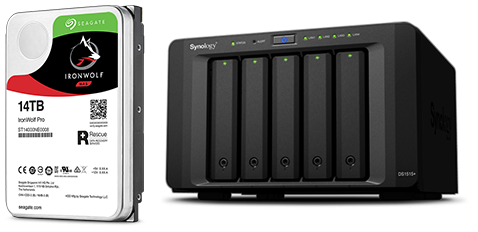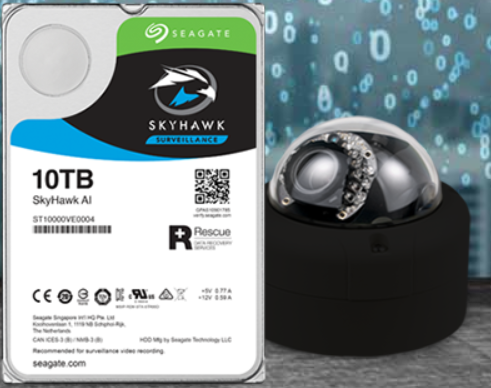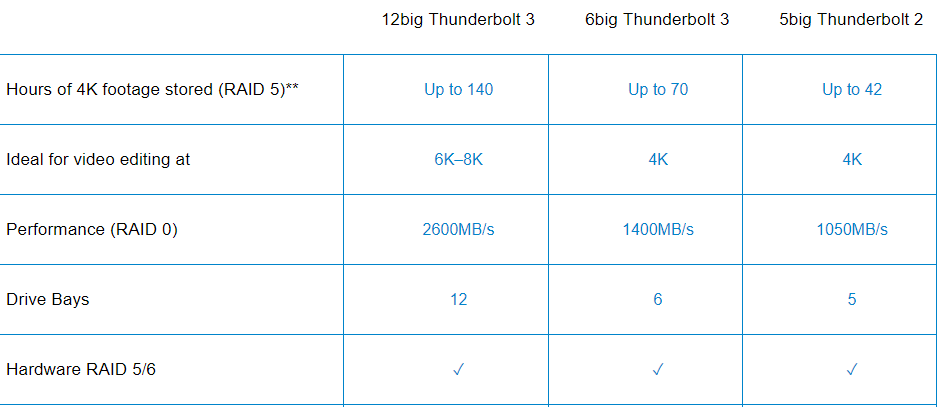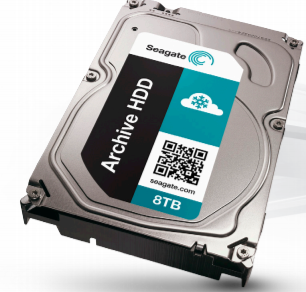What is NAS hard drive?
NAS hard drive is designed for systems running 24/7. This mainly means network attached storage servers. As you may well know NAS servers will turn the drives into a combined storage volume with a 1 or more drive failure protection. RAID means that data is broken down into small pieces and is written across all drives in the RAID group. This means NAS hard drives have to be made to last through neverending reading and writing operations.
How is it different than regular drive?
It is very different than regular desktop drive found in your PC where data is occasionally added to it. Regular drives are made to be turned off daily. Also, desktop drives would unlikely be used in the RAID (mirror or stripe at best). Desktop drives will more often feature higher spin rate. This is because computers using them need to be able to quickly request data from it at any given time. NAS drives will spin at the slower rate or even hibernate when no one is accessing data. And it will also spin faster if there are an increased number of people accessing the data. This means NAS drives are more power efficient rather than desktop drives like WD Blue/ Black or Seagate Barracuda.
NAS hard drive in the enclosure
Many people prefer to use a single drive with a network port attached. This usually is the cheapest option to get a network file server. This is a very slow way of sharing files, but with just 1 or 2 people accessing at the times, this still can be a usable option. The most popular NAS drive with a network port and now even with Plex support is WD My Cloud Home.
NAS Hard Drive | Network File Server -RAID

Simple file storage does not require high-performance drives. All people care about is the data transfer speed. And this is something NAS drives do provide once they are on and spinning. If no one is accessing data drives can go into hibernation mode and save some energy.
It is recommended to use regular NAS drives for NAS systems up to 8 bays. In the NAS with 8 bays and more, we recommend using NAS Pro drives. More drives will mean more vibration. The Pro drives will work perfectly fine in such environments. You will also find that Pro drives are sold with an extended Warranty of 5 years because they are created to last.
Recommended drives up to 8 bays:
Recommended drives for 8 bays and more:
Be aware, Pro drives will create noticeably higher noise because they constantly spin at 7200RPM.
NAS Hard Drive | Surveillance

Surveillance systems will require drives with better writing speed rather than reading. The drives are made to work in 24/7 environments. Similar to regular NAS drives – it is recommended to switch to Surveillance PRO drives if you have a NAS with 8 or more bays. This will also ensure the drives last longer because of created vibrations.
Recommended drives up to 8 bays:
Recommended drives for 8 bays and more:
NAS Hard Drive | Surveillance +Regular NAS use
This is where people get confused. What if I want to do a little bit of everything? Set up a surveillance system, have a multimedia center, backups, and file storage. The answer is simple- choose the drives like you would set up a file server. Same principals apply. WD Red and Ironwolf up to 8 bays and PRO drives for 8+ solutions.
NAS Hard Drive | Virtualisation, Web/DB Server, Video Editing
These are the most performance-demanding tasks you could ask NAS to do. High IOPS (input-output operations) are crucial to ensure people do not feel a slowdown. You need drives to be spinning constantly at 7200RPM or more. This will ensure that NAS can retrieve any data from the drives as quickly as possible. Virtualization and web server NAS are getting hundreds or thousands of operations happening in the background. NAS systems in these environments never hibernate. This makes drives quite noisy and for that reason, NAS is placed in the server room.
Recommended drives:
You may consider Lacie RAID solution for video editing

NAS Hard Drive | Backups & Archiving

It is recommended to use standard NAS hard drives for purposes like simple backups and data archiving. These drives will spin at a slower
speed which will decrease the noise they create as well as the energy they consume. The access time will also be much slower, but this is something you can sacrifice. When saying slower- I mean milliseconds slower. Recommended hard drives for archiving and data backups listed below:
Best-Fit Applications
• Cost-effective online archiving
• Object storage
• Big Data cold storage
• Cloud active archive
• Web-scale archiving
If you want to compare the datashets before you make a choice- I have added screengrabs bellow.

https://www.seagate.com/www-content/product-content/ironwolf/files/ironwolf-pro-ds-1914-1-1611gb.pdf

https://www.seagate.com/www-content/datasheets/pdfs/ironwolf-12tbDS1904-9-1707US-en_US.pdf

https://www.seagate.com/www-content/datasheets/pdfs/exos-x-10DS1948-1-1709US-en_US.pdf

https://www.wdc.com/content/dam/wdc/website/downloadable_assets/eng/spec_data_sheet/2879-800022.pdf

https://www.wdc.com/content/dam/wdc/website/downloadable_assets/eng/spec_data_sheet/2879-800002.pdf

https://www.wdc.com/content/dam/wdc/website/downloadable_assets/eng/spec_data_sheet/2879-800074.pdf

